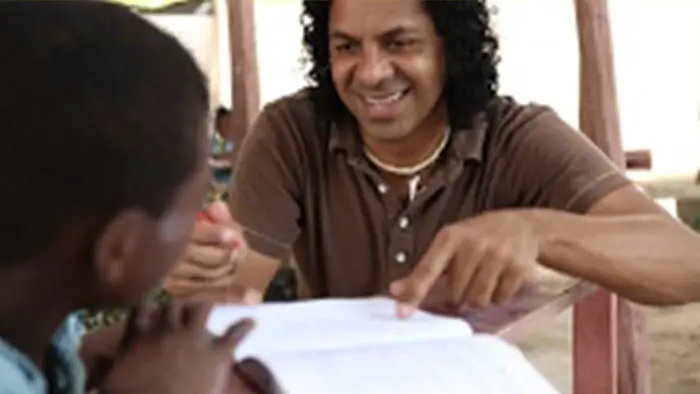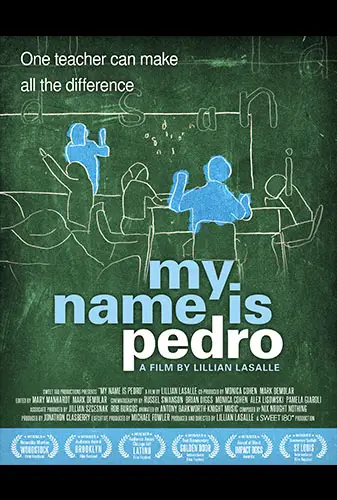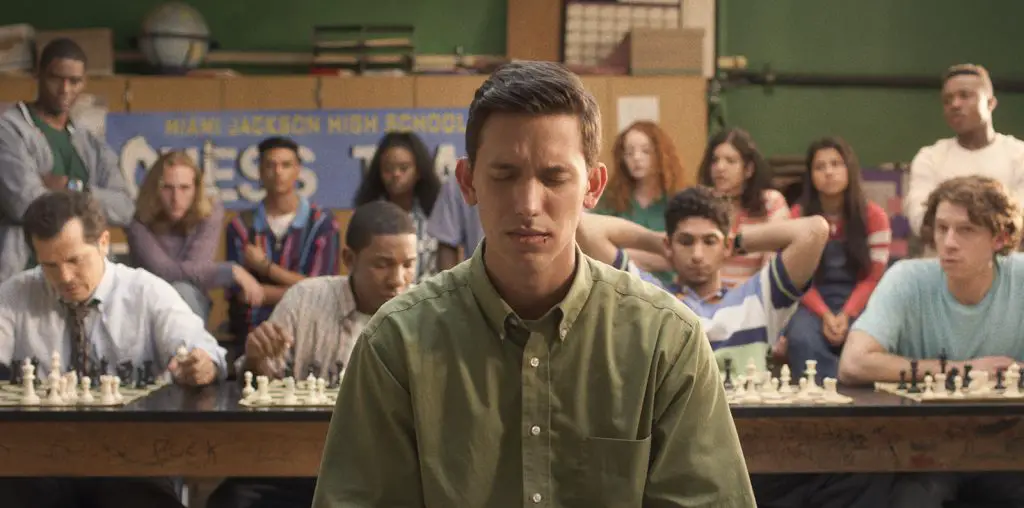
The world needs more people like Pedro Santanna. He was a special education student from the Bronx who talked his way into Columbia University, then worked through the system to become an influential and beloved principal. He turned around floundering schools, helped students on the verge of failure, engaged parents in their children’s education, and brought together a community. My Name is Pedro, by freshman filmmaker Lillian LaSalle, is an uneven but loving tribute to the controversial educator.
Santanna, as presented in this documentary, is a constant blur of motion. He walks school halls, works with the faculty, and talks to parents. He’s a whirling dervish of frenetic energy with the single goal of bettering his community. Chatty, affable, and with a ridiculous shock of curly hair, Santanna doesn’t seem real. He seems more like a ridiculous comic character. But his passionate drive to help students and his community is readily apparent.
However, this is a film review, not a eulogy. Perhaps Santanna is the saint Lillian LaSalle makes him out to be. But I’m here to talk about My Name is Pedro, not its subject. While I can see what LaSalle was going for, she falls short by bogging the viewer in extraneous details and meandering tangents. The documentary simultaneously suffers from too much and too little focus. It delves exclusively into Pedro Santanna, deep into the minutia of his background, motivations, and quirks to the exclusion of all else. Instead of providing us with more context into who he is as a person, it needlessly impedes the narrative by continually planting ideas that never pay off. The use of the word eulogy wasn’t an accident. Santanna died during the filming, so it is possible that with his loved ones’ wounds still fresh, LaSalle wanted to spare their feelings and spent too much time canonizing her subject.

“…a tragic tale about how the best of intentions and the democratic system can fail a community…”
That being said, it’s easy to see why he’d spark this kind of love. The scenes of him working are genuinely sweet and inspirational. Talking with a mom whose child needs a dispensation due to tragedy, and taking the time to make sure she’s doing okay was astonishing. She didn’t expect anyone to ask about her, and watching her on the verge of tears from his simple act of compassion is a great moment.
It is apparent in every frame of My Name is Pedro, that this man loves his job. That he goes out of his way to personalize his students’ education experience shows how much he cares. For him, “No child left behind” isn’t an empty motto, but a goal that’s tattooed on his soul.
That is not to say he didn’t have detractors. The school board, made up primarily of Hassidic men, is a pervasive antagonistic presence. Every decision helps their private yeshivahs while draining money away from the secular public schools. While this could have easily turned into an anti-Semitic propaganda piece, LaSalle manages to keep an even hand on the project, which is difficult since the only person who spoke for the Hassid community was their lawyer.
My Name is Pedro is a tragic tale about how the best of intentions and the democratic system can fail a community. It is an uneven and overly loving documentary from a freshman director, but we can also hope that it is also an inspiration for educators of the next generation.

"…hope that is also an inspiration for the next generation of educators…"


